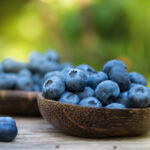China's new round of tariff exclusions kicks in

A new round of tariff exclusions is now available for Chinese importers of U.S. agricultural products, but it is as yet unclear what the impact on trade will be.
As of March 2, importers can apply for exclusions for U.S. commodities impacted by China's retaliatory Section 301, which have increased total tariffs by 30% on many key fruit exports.
Section 232 tariffs of 15%, which were implemented in retaliation to U.S. tariffs on steel and aluminum, will remain in place. And with the previous 10-15% tariff China’s most favored nation (MFN) tariff, the duty for exclusion-eligible importers of many U.S. fruits would be around 25-30%.
While China's Feb. 22 announcement provides a new list of 696 tariff lines available for exclusion, with approximately 150 agricultural-related tariff codes, it also states that applicants may apply for an exclusion for products not listed in the announcement.
Tariff exclusions will be approved for individual applicants and will not automatically extend to all importers. Qualified importers can begin applying through China's Ministry of Finance website beginning March 2.
In its announcement, China said the move was in order to better meet the increasing demands of consumers in China.
It also follows the recent implementation of the phase one trade deal between China and the U.S., under which China agreed to significantly increase purchases of U.S. agricultural products.
Fruit items included on the list include fresh or dried oranges, which would face a 26% tariff under the exclusion (11% MFN and 25% section 232), fresh grapes, which would face 28%, and fresh cherries, which would face 25%.
Apples and pears are not on the list, but these can still benefit as China's announcement states that importers may submit an application for adding excluded products.
It remains to be seen how many Chinese importers will be successful in applying for tariff exclusion on U.S. fruit imports, and what the effect on trade could be following a two-year trade war.
Todd Fryhover of the Washington Apple Commission said there are "too many variables in play to predict the impact on Washington apples at this time".
Last month, Casey Creamer of the California Citrus Mutual (CCM) said that Navel orange exports to China were this season running even lower than the previous season as Chinese importers would have had time to find alternative suppliers.
And it is unclear if a 30% tariff reduction to around 25% would be enough to tempt suppliers back to U.S. fruit.















































